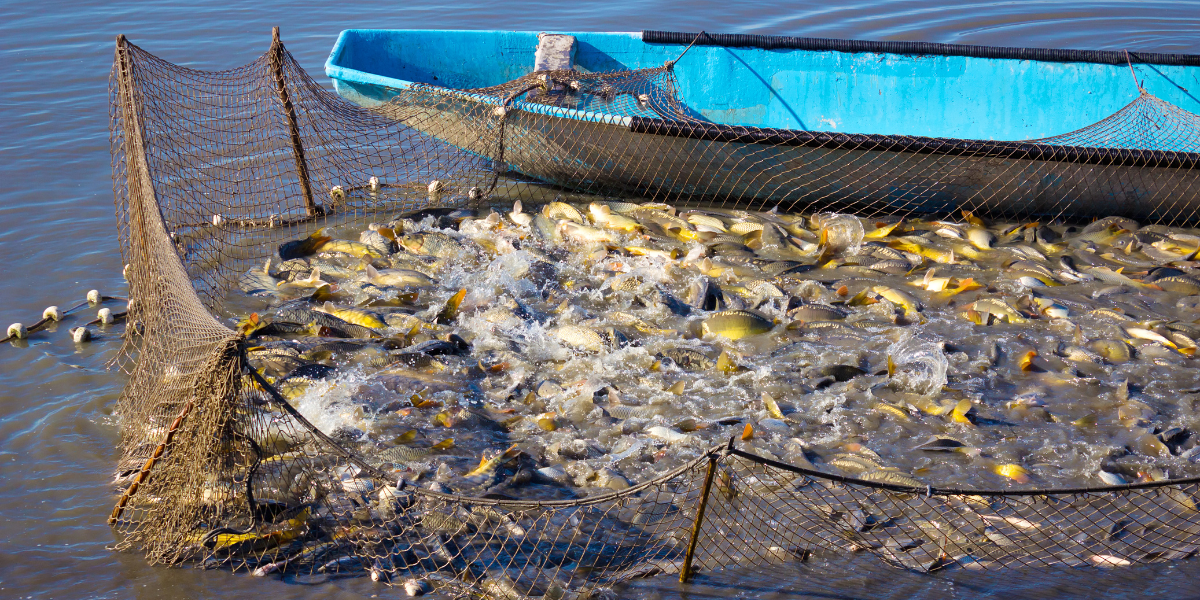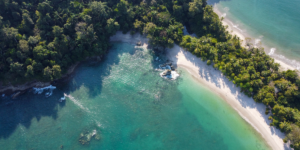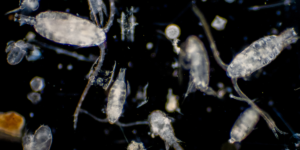If you’re someone who loves seafood, there’s a good chance that the fish on your plate has been overfished. Overfishing is when more fish are taken out of the ocean than can be replaced through natural reproduction. This practice has been going on for decades and it’s having a significant impact on marine ecosystems.
Overfishing disrupts the food chain in the ocean, which affects all species living within it. When certain types of fish are overfished, their predators don’t have enough to eat and may die off or migrate elsewhere. This can have a ripple effect throughout the entire ecosystem, as other species that rely on those predators for food will also be affected.
In this article, we’ll explore some of the impacts of overfishing on marine ecosystems, including the collapse of ecosystems and consequences for both the environment and fishing industry.
Key Takeaways
- Overfishing disrupts the food chain and affects all species living in the ocean.
- Depletion of certain fish can lead to predators not having enough to eat and may die off or migrate elsewhere, creating an ecological imbalance and altering entire ecosystems beyond recognition.
- Overfishing removes large predators and causes an imbalance in food webs, ultimately leading to ecosystem collapse and biodiversity loss.
- Overfishing has severe economic implications, including job losses and increased seafood prices. Governments implementing measures such as catch limits, fishing quotas, and protected areas, and individuals choosing sustainably sourced seafood products can help address the issue. Advocating for stronger regulations by contacting elected officials can also make a difference.
Disruption of the Food Chain
When we overfish, we’re not just depleting fish populations – we’re disrupting the entire food chain.
As top predators are removed from marine ecosystems, their prey may experience a surge in population, which can lead to negative repercussions for other species.
For example, if we overfish tuna, their prey – such as smaller fish and squid – will increase in number. This may seem like a good thing at first glance, but it can create an ecological imbalance.
As the population of small fish and squid grows unchecked, they will consume more plankton and other tiny organisms that form the base of the food web. This can have devastating effects on other marine life that rely on these organisms for survival.
Additionally, when there are fewer large predators in an ecosystem, smaller predators may become more dominant and begin to feed on species they wouldn’t normally eat.
All of these factors can have significant impacts on the health and sustainability of marine ecosystems.
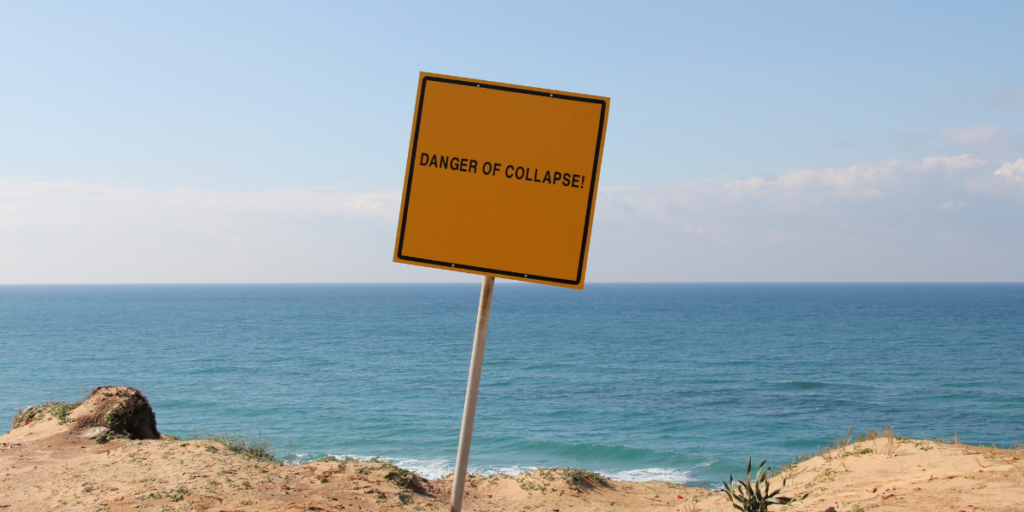
Collapse of Ecosystems
The devastation caused by the collapse of these ecosystems is evident in the loss of countless species and disruption of delicate ecological balance.
Overfishing has resulted in an imbalance in the predator-prey relationship, which has led to a cascading effect on other species within the ecosystem.
The depletion of top predators such as sharks and tuna has allowed their prey to flourish unchecked, leading to competition for resources and ultimately resulting in a decline in overall biodiversity.
Long term consequences of overfishing include altering entire ecosystems beyond recognition, making it difficult for them to recover even after fishing pressure is reduced or eliminated.
Entire habitats can be destroyed when fish populations are depleted or when non-targeted species are caught as bycatch.
As these ecosystems continue to degrade over time, they become less resilient to outside pressures such as climate change or pollution.
This creates a vicious cycle that can lead to further ecological imbalances and make it increasingly challenging to restore marine biodiversity.
Consequences for the Environment
You’re swimming in a vast ocean of life, but the more you fish, the more you cast a net that tears apart the intricate web of creatures that make up this delicate ecosystem. As you continue to take without thought for tomorrow, you’re slowly eroding the very foundation that supports all life on this planet.
Overfishing has led to habitat destruction and biodiversity loss, which have had significant consequences for the environment. Habitat destruction is one of the most severe impacts of overfishing on marine ecosystems. Fishing gear such as bottom trawls and dredges destroy seafloor habitats where many species live and feed. The repeated use of these gears also damages coral reefs, which are essential breeding grounds and nurseries for various species.
Biodiversity loss is another outcome of overfishing. The removal of large predators from an ecosystem can lead to an imbalance in food webs, causing a cascading effect on other species within the ecosystem. In some cases, it can even cause entire ecosystems to collapse.
Consequences for the Fishing Industry
Imagine yourself as a fisherman, struggling to catch enough fish to support your family and business while the once-abundant schools of fish disappear before your eyes. The consequences of overfishing on the fishing industry are far-reaching and severe.
In addition to declining stocks, there are economic implications that can lead to job losses. As more and more fishermen compete for fewer fish, the price of seafood increases. This puts a strain on consumers who may not be able to afford their favorite dishes or have to settle for lower quality alternatives.
Furthermore, when there are no longer enough fish in an area, fishermen may need to travel farther out into the ocean in search of them. This increases fuel costs and can make it difficult for smaller businesses with limited resources to stay afloat.
Ultimately, overfishing can lead to job losses as fisheries become unsustainable and companies go bankrupt.
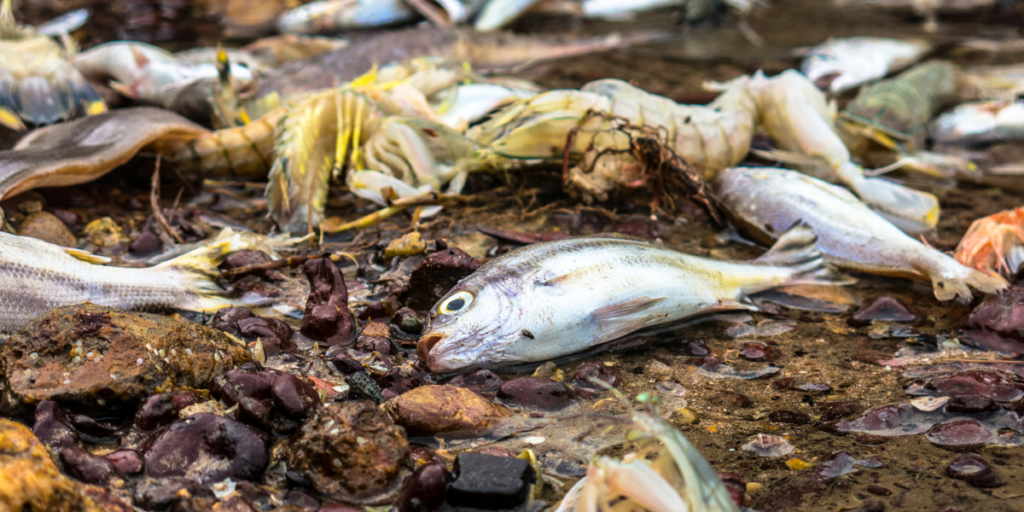
Addressing the Issue
To address the issue of overfishing and its impacts on marine ecosystems, you’ll need to start making small changes in your everyday life that can make a big difference in the health of our oceans and the fishing industry.
One potential solution is to choose sustainably sourced seafood products when shopping for groceries or dining out. Look for labels and certifications such as Marine Stewardship Council (MSC) or Aquaculture Stewardship Council (ASC), which indicate that the fishery or farm has been independently certified as sustainable.
Another important aspect of addressing overfishing is government regulation. Governments can implement measures such as catch limits, fishing quotas, and protected areas to help ensure that fish populations are able to replenish themselves.
In addition, consumers can advocate for stronger regulations by contacting their elected officials and expressing their concerns about overfishing. By working together, individuals and governments can help protect our oceans and ensure a healthy future for both marine ecosystems and the fishing industry.
Frequently Asked Questions
How does overfishing affect the genetic diversity of marine species?
When overfishing occurs, genetic adaptation in marine species can be affected. Breeding programs can help maintain genetic diversity and prevent negative impacts on population health.
What are the potential economic impacts of overfishing on local communities?
Overfishing can cause economic sustainability issues by depleting fish stocks, impacting community livelihoods. It’s like a savings account – you can’t withdraw more than you deposit. Similarly, we must manage our marine resources for long-term benefit.
Can overfishing lead to the extinction of certain marine species?
Overfishing can result in the depletion of certain marine species and negatively impact marine biodiversity. This can lead to the extinction of these species, disrupting food chains and ecosystems, ultimately affecting human populations who depend on them for livelihoods and sustenance.
How does overfishing affect the quality of seafood consumed by humans?
You may be surprised to know that overfishing can impact the quality of seafood you consume. Sustainability concerns and consumer preferences have led to decreased availability of popular species like Atlantic cod, leading to higher prices and potentially lower quality products.
What role do regulations and policies play in addressing overfishing?
Regulations and policies are essential in addressing overfishing, ensuring sustainable fishing practices. They establish catch limits, reduce bycatch, and support the conservation of endangered species. Compliance is crucial to prevent further depletion of marine resources.

